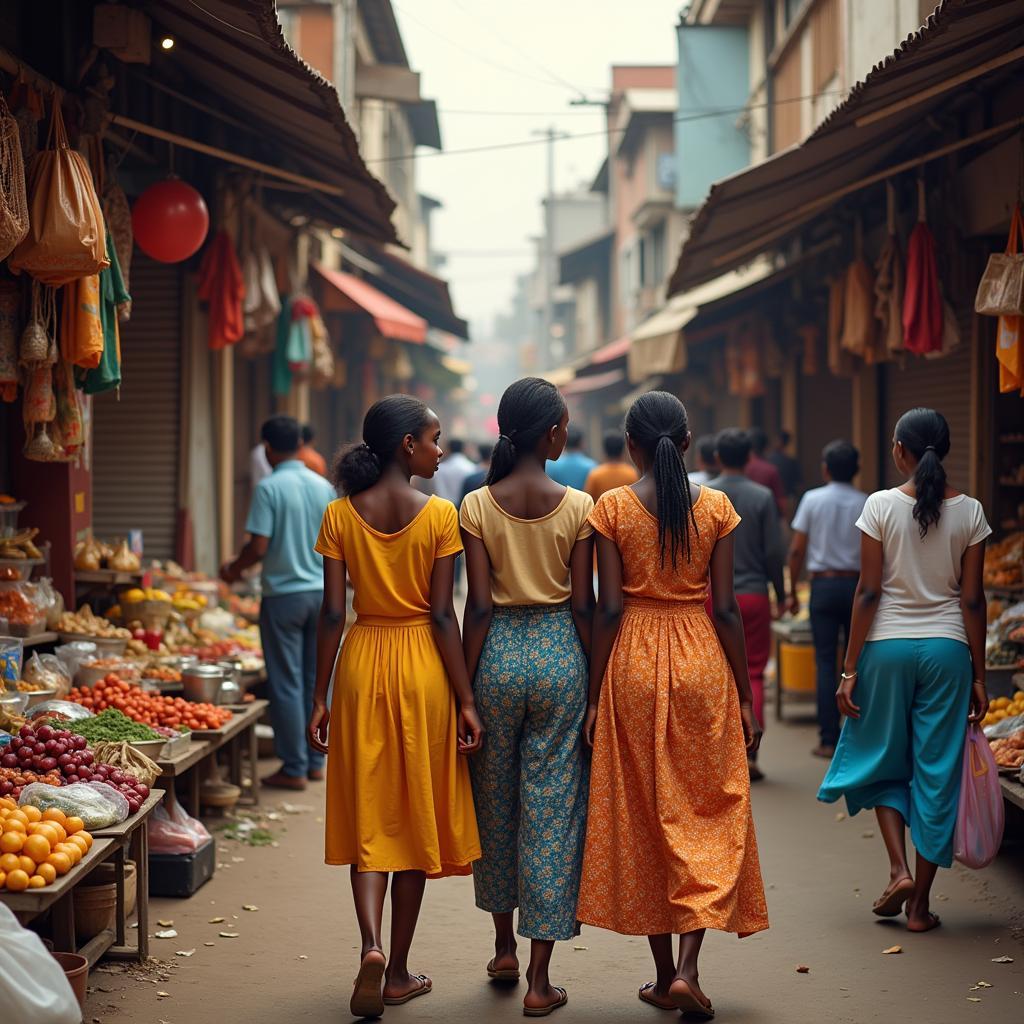Exploring the Vibrant World of African Drama Plays
African Drama Plays offer a captivating window into the diverse cultures, histories, and social realities of the continent. From ancient storytelling traditions to contemporary theatrical productions, African drama has evolved into a powerful medium for artistic expression, social commentary, and cultural preservation. This exploration delves into the rich tapestry of African drama, examining its historical roots, thematic concerns, prominent playwrights, and the enduring impact of these plays on both African and global audiences.
After the devastating effects of colonialism and the struggle for independence, many African playwrights used their art to expose the injustices and exploitation faced by their people. These plays often explored themes of identity, political corruption, and the clash between traditional and modern values. African Development Bank Abidjan played a crucial role in supporting cultural initiatives, including theatre, during this period.
A Journey Through Time: The History of African Drama
African drama’s origins lie deep within the continent’s rich oral traditions. Storytelling, music, dance, and ritual performances formed the bedrock of early dramatic expressions. These performances often served vital social functions, transmitting cultural values, historical narratives, and moral lessons across generations. With the arrival of colonialism, new forms of theatre emerged, often blending indigenous traditions with European dramatic conventions. This fusion created a unique and dynamic theatrical landscape that reflected the changing social and political context of the continent.
Key Themes and Artistic Styles in African Drama Plays
African drama plays explore a wide range of themes, reflecting the complexities of life on the continent. Common themes include colonialism and its aftermath, the struggle for independence, cultural identity, political corruption, social injustice, and the challenges of modernization. Playwrights often utilize various artistic styles to convey these themes, including realism, satire, allegory, and magical realism, drawing upon both indigenous performance traditions and contemporary theatrical techniques. Plays frequently incorporate music, dance, and other performative elements, creating a multi-sensory experience for the audience.
Notable Playwrights Shaping African Theatre
Numerous talented playwrights have emerged from Africa, making significant contributions to the world of theatre. Wole Soyinka, the first African Nobel laureate in Literature, is renowned for his politically charged plays that critique corruption and injustice. Athol Fugard, a South African playwright, has given voice to the struggles of those living under apartheid. Efua Sutherland, a Ghanaian playwright, championed the development of modern Ghanaian theatre, drawing inspiration from traditional storytelling forms. These are just a few examples of the many influential playwrights who have shaped the landscape of African drama.
Many contemporary African plays address current social and political issues, such as gender inequality, environmental degradation, and the impact of globalization. The African Beast Website provides valuable insights into the continent’s wildlife and the challenges of conservation, a theme often reflected in modern African drama.
The Enduring Legacy of African Drama Plays
African drama plays have had a profound impact on both African and global audiences. They provide a platform for exploring complex social and political issues, challenging perspectives, and promoting intercultural dialogue. These plays also serve as a powerful tool for cultural preservation, transmitting historical narratives, values, and traditions to future generations. The influence of African drama can be seen in the work of playwrights around the world, demonstrating its enduring legacy and contribution to the global theatrical landscape. The vibrancy and richness of African Cup of Nations 2017 Qualification is a testament to the continent’s passion for storytelling and performance.
Conclusion
African drama plays offer a unique and compelling lens through which to understand the rich tapestry of African Life, history, and culture. From ancient storytelling traditions to contemporary theatrical productions, these plays continue to captivate audiences, spark dialogue, and inspire change. Exploring the vibrant world of African drama allows us to connect with the diverse voices and perspectives of the continent and appreciate the power of theatre as a force for social commentary and cultural expression.
FAQs
-
What are some common themes in African drama plays?
Common themes include colonialism, independence, cultural identity, and political corruption. -
Who are some prominent African playwrights?
Wole Soyinka, Athol Fugard, and Efua Sutherland are notable examples. -
What is the significance of oral tradition in African drama?
Oral traditions form the historical foundation of African drama, influencing its style and themes. -
How has colonialism impacted African drama?
Colonialism led to the fusion of indigenous and European dramatic conventions. -
What is the role of music and dance in African drama?
Music and dance often enhance the dramatic narrative and create a multi-sensory experience. -
Why are African drama plays important?
They provide platforms for social commentary, cultural preservation, and intercultural dialogue. -
Where can I find resources about African drama?
University libraries, online databases, and cultural centers offer valuable information.
More Questions You Might Have
- What are the key differences between traditional and modern African drama?
- How does African drama reflect the continent’s diverse languages and cultures?
- What is the role of theatre festivals in promoting African drama?
Further Exploration on African Life
For those interested in learning more about the diverse aspects of the African continent, explore related articles on our website: African Earth Science and African Elephant Size vs Blue Wel.
For any assistance or further inquiries, please don’t hesitate to contact us: Phone: +255768904061, Email: kaka.mag@gmail.com, or visit us at Mbarali DC Mawindi, Kangaga, Tanzania. Our customer service team is available 24/7.

